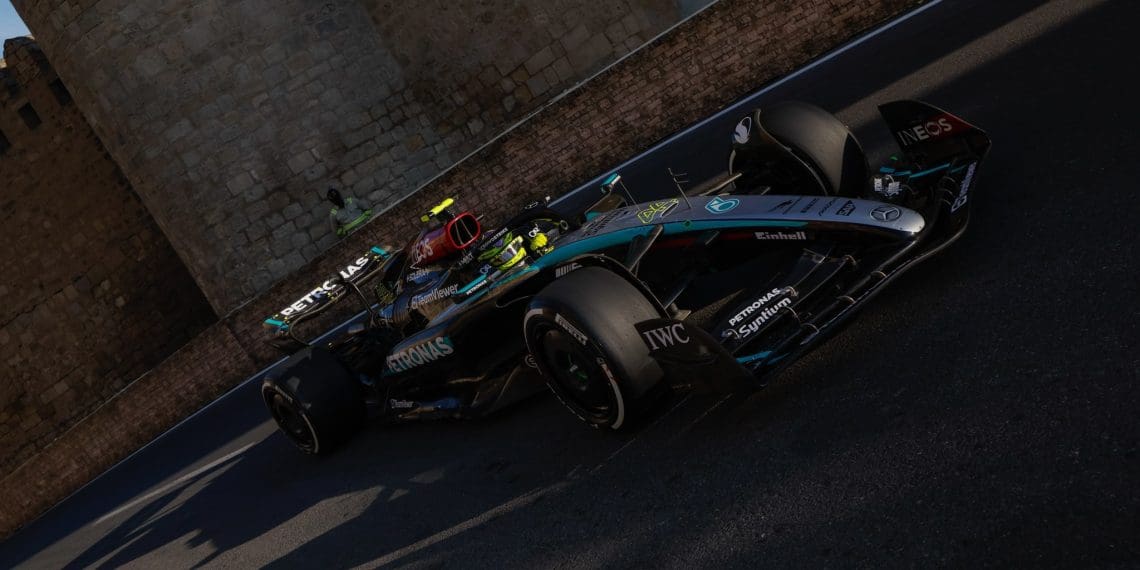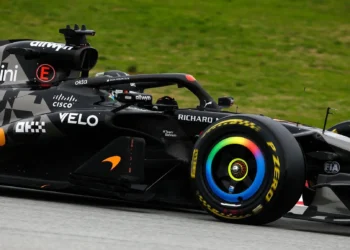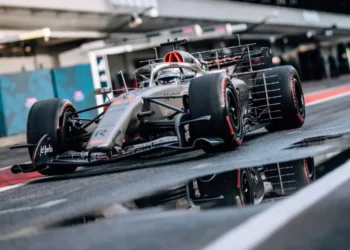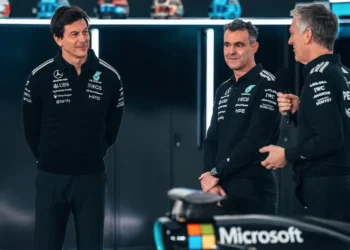Mercedes faced another setback at the Azerbaijan Grand Prix, as Lewis Hamilton was forced to start from the pitlane after taking a fresh engine following qualifying. As fans raised questions about the decision, Toto Wolff stepped forward to explain the rationale behind the move.
Hamilton, who qualified in seventh, was slapped with an engine penalty, dropping him to the back of the grid. This left the seven-time world champion with an uphill battle in Baku, a notoriously tough circuit for overtaking. Wolff revealed that the decision to install a new engine was part of a broader strategy, hinting that the team saw this race as an opportunity to take the hit and minimize the damage.
“Baku is a track where overtaking is incredibly difficult,” Wolff explained. “We knew Lewis would be stuck in a DRS train, and it would have been nearly impossible to make significant progress. So, we evaluated whether to take the penalty here or in Austin, where we believe we have a better chance of scoring big points. It was a calculated risk.”
The gamble paid off in some respect, as Hamilton managed to salvage ninth place in a race that saw other drivers falter. Despite starting from the pitlane, the Brit benefitted from the crash between Sergio Perez and Carlos Sainz, and the subsequent damage to Nico Hulkenberg’s car, which allowed him to gain crucial positions in the closing stages.
However, it wasn’t smooth sailing for the Mercedes driver, as Mercedes’ Engineering Director, Andrew Shovlin, highlighted the DRS train issue that plagued Hamilton throughout the race. “Lewis was stuck in a DRS train for most of the race, which caused his rear tires to overheat,” Shovlin explained. “When the tires got too hot, he had to slow down to cool them, and that vicious cycle severely hampered his pace.”
This tire issue, combined with the difficulty of making progress in the tightly packed field, left Hamilton struggling to climb higher, but Wolff pointed out that the engine penalty was part of a long-term strategy. “We prioritized Austin, where overtaking is more feasible, and where we expect to have a better package. Taking the penalty in Baku was a tough choice, but one that will hopefully benefit us in the long run,” Wolff concluded.
Ultimately, Hamilton’s race in Baku might not have been the victory fans were hoping for, but the team is looking ahead to the United States Grand Prix, where they plan to capitalize on a more favorable race setup.










